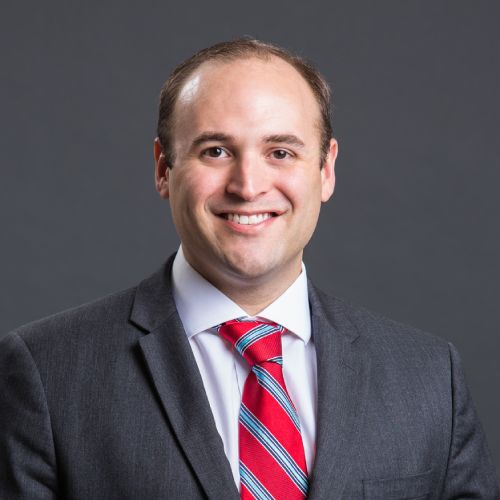
A trip to the hospital is supposed to make you better, not leave you worse off. But when trusted medical professionals make avoidable mistakes, the consequences can be devastating. You might be left wondering whether what happened was just an unfortunate outcome or something that could have been prevented.
If you’re unsure whether your experience qualifies as malpractice, you’re not alone. Many Florida residents don’t realize they have a case until it’s too late. This article walks you through common types of medical malpractice, shares real-life examples of medical malpractice cases, and explains how a medical malpractice attorney can help you fight back when medical care goes wrong.
Common Types of Medical Malpractice in Florida
Medical malpractice can occur in many forms, but some are more common than others. Examples of medical malpractice cases can help you determine whether your situation involves negligence.
Misdiagnosis or Delayed Diagnosis
Failing to diagnose a condition accurately or in a timely manner can prevent patients from receiving the critical care they need. A misdiagnosis can result in incorrect treatment, while a delayed diagnosis can allow a condition to worsen.
Surgical Errors
Mistakes made during surgery can lead to long-term complications or even death. These errors might include operating on the wrong body part, leaving surgical tools inside a patient, or failing to monitor vital signs properly.
Birth Injuries
Errors during labor and delivery can have lifelong consequences for both the baby and mother. Examples include failing to respond to fetal distress, improper use of forceps, or delaying a necessary C-section.
A Florida jury awarded $33.8 million to a family whose child suffered permanent brain damage after hospital staff failed to monitor and respond to signs of fetal distress.
Anesthesia Mistakes
Anesthesia errors can cause serious harm, including brain damage or death. These mistakes often involve administering the wrong dosage, failing to monitor the patient, or not reviewing allergies and medical history beforehand.
Medication Errors
Prescribing the wrong drug, giving the wrong dose, or failing to consider drug interactions can cause significant injury. These mistakes often result from poor communication, misreading charts, or pharmacy errors.
Medical malpractice takes many forms, but each involves a breach of trust. Whether it’s a surgical tool left behind or a missed diagnosis, these errors can have permanent consequences. Understanding the specific type of negligence involved helps build a stronger case for compensation.
What You Need to Prove in a Florida Medical Malpractice Case
To succeed in a medical malpractice case, you must prove:
- A duty of care existed. The healthcare provider had a legal obligation to treat you according to accepted medical standards.
- There was a breach of that duty. The provider acted, or failed to act, in a way that deviated from those standards.
- That breach caused harm. You must show that the medical error directly led to injury or worsened your condition.
- Damages. You must demonstrate that you experienced physical pain, emotional suffering, lost income, or additional medical expenses as a result.
Each element must be supported by credible evidence, including expert medical testimony. A knowledgeable Florida malpractice attorney can gather this information and present a clear case on your behalf.
How Long Do You Have to File a Claim in Florida?
Florida law requires you to file a medical malpractice lawsuit within two years of the date you discovered or reasonably should have discovered the injury. However, the law also includes a four-year maximum window from the actual date of the negligent act, regardless of when the injury became apparent. This deadline applies whether you’re filing against an individual provider or a hospital.
Certain exceptions may apply, such as cases involving minors or instances of fraud. Missing the statute of limitations can permanently bar you from recovering compensation. That’s why it’s essential to act quickly and speak with a lawyer when you suspect something went wrong with your medical care.
Get Legal Help from a Florida Malpractice Attorney You Can Trust
When medical professionals violate the standards of care, the consequences can affect every part of your life. At James Horne Law, we hold negligent doctors, hospitals, and healthcare systems accountable for the harm they cause. Our firm is known for taking on challenging cases, and we bring decades of experience to every claim. We’ve earned a 10.0 rating from Avvo and have secured one of the Top 100 Medical Malpractice Verdicts. If you believe you or your loved one is a victim of malpractice, contact us today for a free consultation.
FAQs About Medical Malpractice in Florida
What Qualifies as Medical Malpractice in Florida?
Not every medical mistake is malpractice. You must prove that the provider deviated from accepted medical practices and that this caused your injury. An experienced attorney can help you determine whether your case qualifies.
How Much Can You Recover in a Medical Malpractice Case?
Compensation may cover medical bills, lost wages, pain and suffering, and future care. Depending on the defendant and circumstances, Florida law limits certain noneconomic damages in some cases. An attorney can explain what compensation may be available in your case.
Is It Expensive to Hire a Malpractice Lawyer?
James Horne Law offers contingency fee arrangements, meaning you pay nothing unless we recover compensation for you. This ensures access to legal help without upfront costs.



